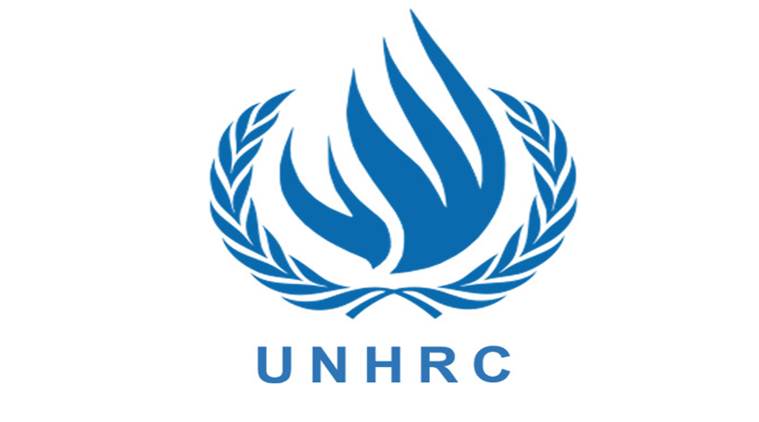Apte was a part of a four-member team from India on behalf of the World Barua Organisation (WBO), an apolitical not-for-profit organisation working for the human rights protection of Barua Community.
 The institute had communicated the decision to students via a circular issued on May 25, in which it cited a financial deficit of Rs 20 crore as the reason behind the withdrawal.A RESEARCH scholar from the Tata Institute of Social Sciences (TISS), Mumbai, has drawn the attention of the United Nations Human Rights Council (UNHRC) to the recent cuts in the expenditure on higher education in the country.
The institute had communicated the decision to students via a circular issued on May 25, in which it cited a financial deficit of Rs 20 crore as the reason behind the withdrawal.A RESEARCH scholar from the Tata Institute of Social Sciences (TISS), Mumbai, has drawn the attention of the United Nations Human Rights Council (UNHRC) to the recent cuts in the expenditure on higher education in the country.
Sangharsh Apte, who is pursuing a PhD in reproductive health from TISS, made a representation at the UNHRC in Geneva on Friday. In his statement, Apte had urged the council “to take appropriate measures and make the Indian government accountable for the protection [of] Dalit and tribal students’ rights. TISS administration’s recent withdrawal of its financial aid to the students belonging to Scheduled Castes (SC), Scheduled Tribes (ST) and Other Backward Classes (OBC), with a family income below the union government norms, also found mention in Apte’s statement.
“In a recent incident at Tata Institute of Social Sciences in Mumbai. facilities such as hostel and subsidised food for these students were abruptly withdrawn without any legal mandate and prior notice to students. This has led large number of students from this community vulnerable and forced them to withdraw their admissions,” he said at the council, which convened for a general debate on human rights situations that require the UNHRC’s attention.
The institute had communicated the decision to students via a circular issued on May 25, in which it cited a financial deficit of Rs 20 crore as the reason behind the withdrawal.
Apte was a part of a four-member team from India on behalf of the World Barua Organisation (WBO), an apolitical not-for-profit organisation working for the human rights protection of Barua Community. The team argued that education acted as an instrument of emancipation for Dalit and tribal children. The team had also added that in the past two decades the enrolment of Dalits and tribal students has significantly increased in higher education institutes, owing to the increased awareness and welfare policies, such as scholarship, hostel and other facilities provided by the government. And, hence, a cut back on these policies would be detrimental to the inclusive education.
The UNHRC took note of the statement, which was recorded on the council’s website as: “The World Barua Organisation reminded that, traditionally, the Dalit and lower-caste people had been barred from the education system in India. Despite later legal changes, which had allowed them to attend university, the recent reduction of education grants for those groups had led to a large number of students having to withdraw their university admissions.” Academicians endorsed the statement made by Apte and the WBO. Economist Sukhadeo Thorat, who has earlier served as the chairman of the Indian Council of Social Science Research and Universities Grants Commission, said the government scholarships and financial aid were a major source of funding the education of Dalit students.
“The Government of India scholarship released by the union ministry of social justice and empowerment was instituted as early as 1945. Although I am not aware of the details of the aid withdrawals at TISS, a cut in the scholarships will be a major setback for Dalit students,” said Thorat. The debate saw participation from around 100 people from organisations working on human rights issues in 50 countries. The debate was also attended by delegates from each of the countries, who have the right to reply at the end of the sessions.
http://indianexpress.com/article/india/tiss-scholar-seeks-unhrc-intervention-for-protection-of-dalit-tribal-students-rights/
June 19, 2017 at 4:14 pm
The Tata Institute withdrawal of research grants to tribal and lower castes citing deficit is deplorable. The UNHRC should direct TISS not to create hurdles in the career of the dalit and tribal research students for their future development